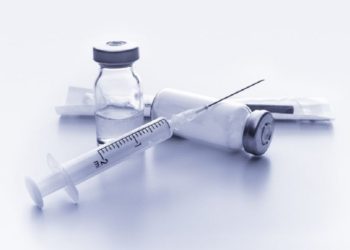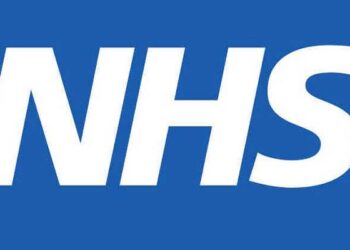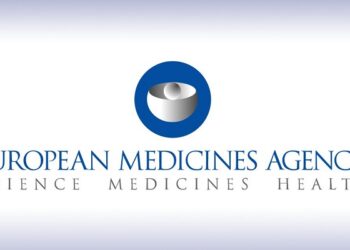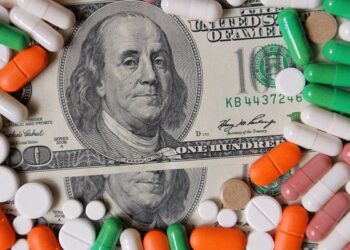The U.S. Food and Drug Administration (FDA) today granted tentative approval for Basaglar™ (insulin glargine injection), which is indicated to improve glycemic control in adults with type 2 diabetes and in combination with mealtime insulin in adults and pediatric patients with type 1 diabetes. Basaglar is not recommended for the treatment of diabetic ketoacidosis. Basaglar is Eli Lilly and Company (NYSE: LLY) and Boehringer Ingelheim’s basal insulin, which is intended to provide long-lasting blood sugar control in between meals and during the night.1
Basaglar has the same amino acid sequence as the currently marketed insulin glargine product and was tentatively approved for use with KwikPen®, a pre-filled dosing device. Basaglar is contraindicated during episodes of hypoglycemia and in patients with hypersensitivity to insulin glargine or one of its other ingredients.
With a tentative approval, the FDA has determined that Basaglar meets all of the regulatory requirements for approval, but it is subject to an automatic stay of up to 30 months as a result of litigation filed by Sanofi, claiming patent infringement. Under the Drug Price Competition and Patent Term Restoration Act (“Hatch Waxman”), the FDA cannot give final approval until the end of the 30-month period in mid-2016, unless the court finds in favor of Lilly earlier.
“The tentative approval for Basaglar is another step toward providing an important option for people with diabetes in the U.S. who need basal insulin treatment,” said Enrique Conterno, president, Lilly Diabetes. “We believe insulin glargine will continue to be used widely for many years, and Lilly and Boehringer Ingelheim are committed to addressing the needs of people living with diabetes and providing support beyond the medicine.”
The tentative approval is based, in part, on results from Lilly and Boehringer Ingelheim’s extensive clinical development program for the alliance’s insulin glargine product. The submission included results from pharmacokinetic and pharmacodynamics studies, as well as Phase III studies in people with type 1 and type 2 diabetes.
The Basaglar new drug application was filed through the FDA’s 505(b)(2) regulatory pathway, which allows the agency to consider the efficacy and safety of the existing insulin glargine product. Lilly-Boehringer Ingelheim’s insulin glargine product is considered a biosimilar in other regions such as Europe, where it recently received a positive recommendation from the Committee for Medicinal Products for Human Use (CHMP), a division of the European Medicines Agency. Basaglar is not considered a biosimilar in the United States.
“Because of the combined diabetes, development and commercialization experience of Lilly and Boehringer Ingelheim, we are confident that Basaglar, upon final approval, will become a valuable treatment choice for people who need a basal insulin to manage their type 1 or type 2 diabetes,” said Christophe Arbet-Engels, M.D., Ph.D., vice president, metabolic-clinical development and medical affairs, Boehringer Ingelheim Pharmaceuticals, Inc.
The trade name ‘Basaglar’ was granted provisional approval by FDA and will be used in the U.S. market once the product is made available to patients. While ‘Abasria®’ is an approved name in Europe, it’s not necessarily approved in other regions. Lilly and Boehringer Ingelheim are targeting a global trade name outside of the United States for the alliance’s insulin glargine product, which will be announced at a later date.
About Diabetes
Approximately 29 million Americans2 and an estimated 382 million people worldwide have type 1 or type 2 diabetes.3 Type 2 diabetes is the most common type, accounting for an estimated 85 to 95 percent of all diabetes cases. Diabetes is a chronic condition that occurs when the body either does not properly produce, or use, the hormone insulin.3
Boehringer Ingelheim and Eli Lilly and Company
In January 2011, Boehringer Ingelheim and Eli Lilly and Company announced an alliance in diabetes that centers on compounds representing several of the largest diabetes treatment classes. The alliance leverages the strengths of two of the world’s leading pharmaceutical companies. By joining forces, the companies demonstrate commitment in the care of patients with diabetes and stand together to focus on patient needs. Find out more about the alliance at www.boehringer-ingelheim.com or www.lilly.com.
About Boehringer Ingelheim Pharmaceuticals, Inc.
Boehringer Ingelheim Pharmaceuticals, Inc., based in Ridgefield, CT, is the largest U.S. subsidiary of Boehringer Ingelheim Corporation (Ridgefield, CT) and a member of the Boehringer Ingelheim group of companies.
The Boehringer Ingelheim group is one of the world’s 20 leading pharmaceutical companies. Headquartered in Ingelheim, Germany, it operates globally with 142 affiliates and more than 47,400 employees. Since it was founded in 1885, the family-owned company has been committed to researching, developing, manufacturing and marketing novel medications of high therapeutic value for human and veterinary medicine.
Social responsibility is a central element of Boehringer Ingelheim’s culture. Involvement in social projects, caring for employees and their families, and providing equal opportunities for all employees form the foundation of the global operations. Mutual cooperation and respect, as well as environmental protection and sustainability are intrinsic factors in all of Boehringer Ingelheim’s endeavors.
In 2013, Boehringer Ingelheim achieved net sales of about $18.7 billion (14.1 billion euro). R&D expenditure in the Prescription Medicines business corresponds to 19.5% of its net sales.

















